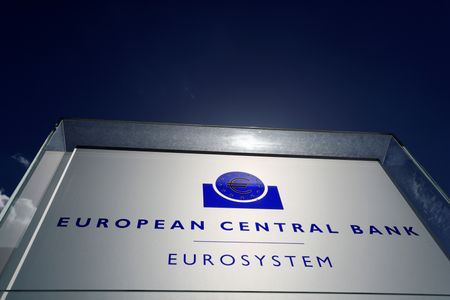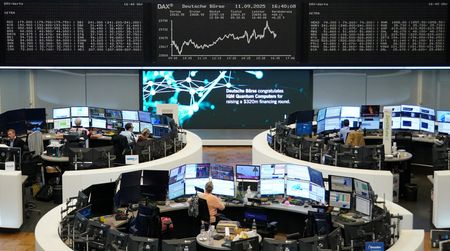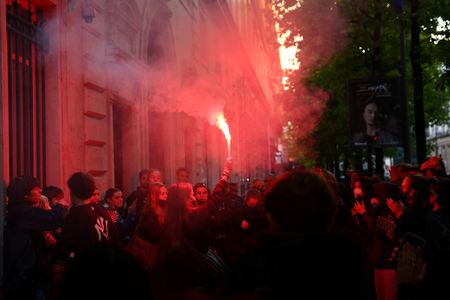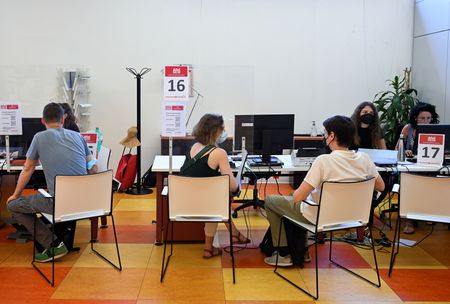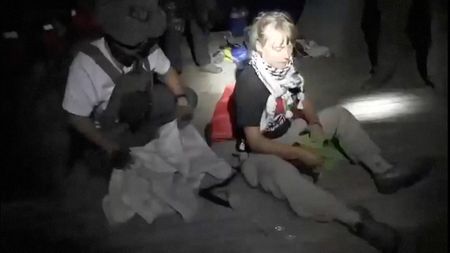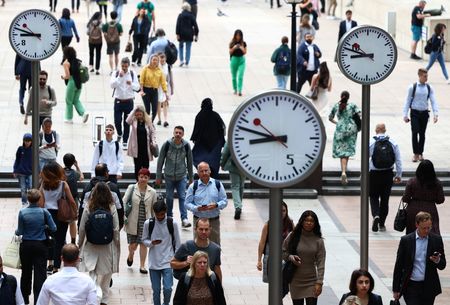By Alessandro Parodi and Nerijus Adomaitis
PARIS (Reuters) -French police have arrested the captain and first officer of a sanctioned tanker suspected of operating for Russia’s “shadow fleet”, after the navy boarded the vessel, authorities said on Thursday.
“Thanks to our Navy commandos and to the crews of the French Navy who intervened this weekend on board a Russian shadow fleet tanker, currently anchored off Saint-Nazaire,” Prime Minister Sebastien Lecornu wrote on X. “Their action contributed to the arrest of two members of its crew.”
Brest Prosecutor Stephane Kellenberger, whose office is handling the investigation into the Boracay, said in a statement the two people in custody had identified themselves as the ship’s captain and its first officer.
They are accused of failing to provide proof of the vessel’s nationality and failing to comply with orders, and their detention has been extended, he said.
Although President Emmanuel Macron has welcomed the probe into the vessel, estimating that Russia’s “shadow fleet” contains 600 to 1,000 ships, French authorities have been tight-lipped about the investigation.
The Boracay, which has been sanctioned by Britain and the European Union, left the Russian port of Primorsk on September 20, according to MarineTraffic data.
It was approximately 50 nautical miles (90 km) south of Copenhagen, heading out of the Baltic Sea, when drone activity forced the closure of the city’s airport around 1830 GMT on September 22, according to MarineTraffic’s data.
It was also observed traveling south along Denmark’s western coast on the evening of September 24, when drones were reported flying north of Esbjerg and near several nearby airports.
French and Danish authorities have declined to comment on whether the French probe is related to the drone incursions.
The Kremlin said on Wednesday it had no information about the vessel but added that the Russian military had to act sometimes to restore order when foreign countries had taken what spokesman Dmitry Peskov described as “provocative actions.”
(Reporting by Alessandro Parodi and Makini Brice; Writing by Gabriel Stargardter; Editing by Richard Lough and Hugh Lawson)



